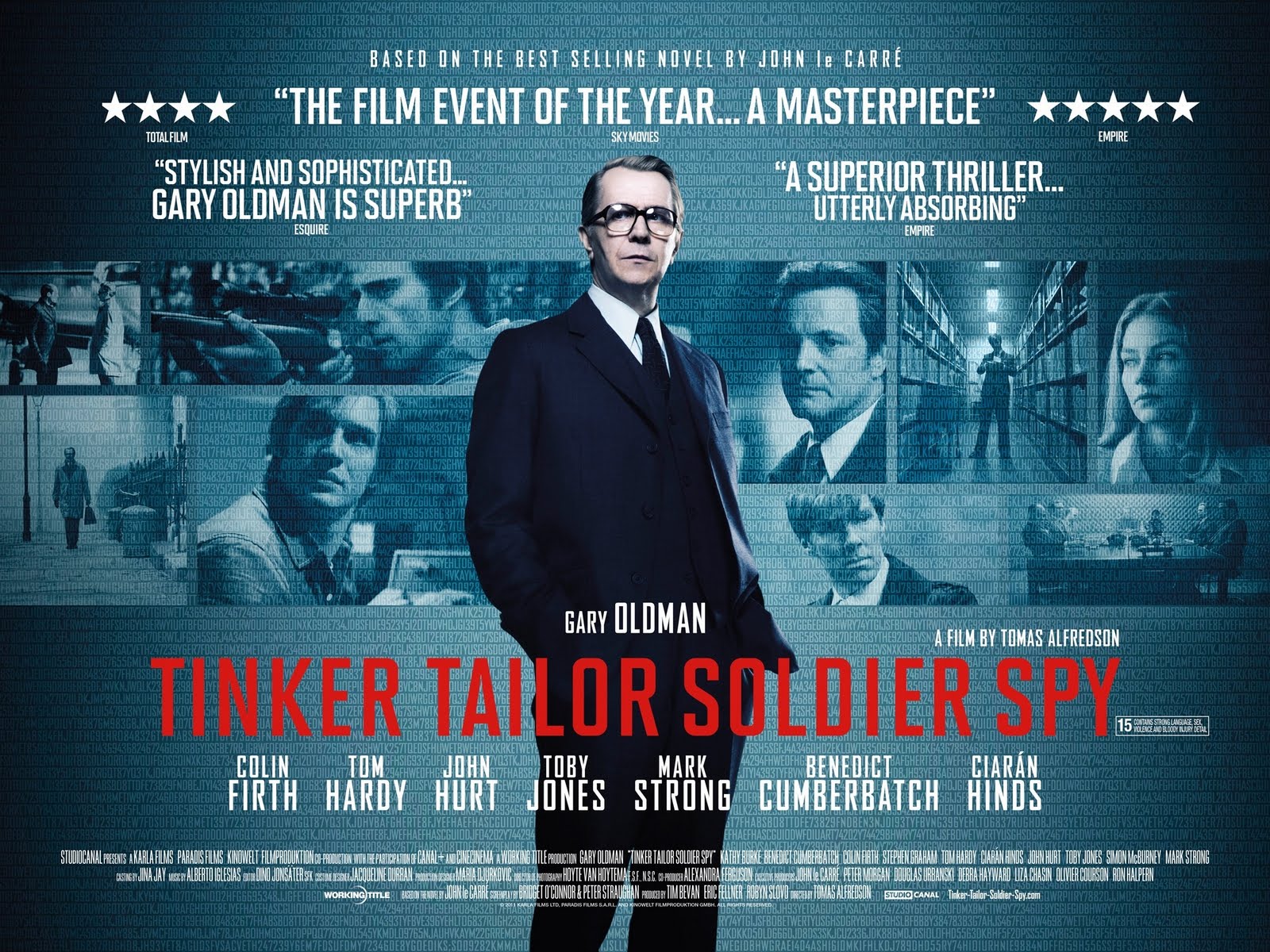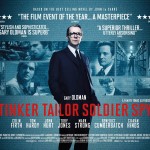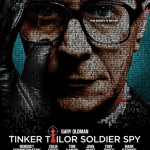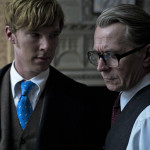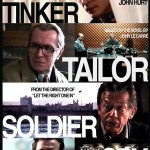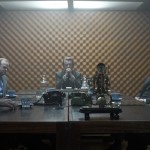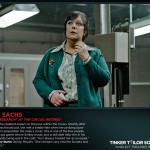The point about espionage is that it is populated by grey men in dull offices. In 1973 they all sucked the life out of their cigarettes while adopting ambiguously inscrutable expressions to prevent or arguably provoke speculation over whether they were moles or any other variety of small mammals. Were they double agents, triple agents, maybe quadruple agents? What was their motive and where were their loyalties? At any rate, their conversations were guarded and elliptical. When pressed at the point of a gun they admitted skeletons in their own and other’s closets that may or may not lead to some great truth or betrayal. Or both.
Whether that is in any way close to the reality of life in the secret services I have no idea, but that is how they come across on screen, no matter whose adaptation of what. Their technology may be slightly more James Bond these days, but the essential nuts and bolts of the trade must be pretty similar. If so, it’s rather like a deadly version of kiddy alliances:
“If you’re playing with Colin I won’t be your friend any more,” “Oh, go on. That’s not fair!” “Can I be in your gang then?” … and so on. Only the alliances and broken loyalties are replaced by national interests.
Interesting then to see how 1973 has changed so little from the original TV adaptation of Le Carre’s famed Tinker Tailor Soldier Spy, other than to look even more dour and tarnished, if that were possible. Imagine a film where it might just as well be raining, even though it’s not! TTSS is filmed in long, slow, funereal shots that linger on the faces and reactions, enabling the audience to drink in the dense, tense ambience, and especially the unspoken words. Even at a Christmas party, the mandarins look decidedly uncomfortable, and the scheming goes on regardless. They know no other way – alcohol and nicotine fuel their insecurity still further, despite the barked orders from the paranoid Control (a grizzled John Hurt, looking and sounding like a verbally animated zombie) to get pissed and let their hair down. The Cold War lives… and to these men it is simply war by another means.
The wily Alec Guinness has been replaced by the savvy Gary Oldman, who says little but uses every one of his 52 facial muscles to huge effect. Like the movie, he moves slowly, reacts with economy but his razor-sharp mind is working overtime. I am a great fan of acting without words. It requires subtlety and skill to convey thoughts and emotions with just a flick of the eye, a turn of the head, a momentary upturn of the corner of the lip, but Oldman delivers it with panache, thus placing him in my estimation alongside Frank Langella in Frost/Nixon and Colin Firth in A Single Man.
More to the point, it’s wonderful to see Oldman finally achieving his potential as an actor, having gone so far over the top on occasions you worried that Hollywood’s snipers would have gunned him down from the opposite trenches long since. But he always commanded the screen (see his crazed, corrupt drug-addled detective in Leon to see what I mean.)
Here he has acquired gravitas as the retired George Smiley, but not too much. Smiley is flawed – and he knows it. Smiley is yesterday’s man but still with a trick or two up his sleeve, in spite of being potentially implicated as the Kremlin’s spymaster mole in Whitehall, codename Karla. Someone in the aptly-named “circus”, and more particularly one of a small number of the inner circle involved with Operation Witchcraft, wants him out of the way. And yet he is appointed as a retiree to conduct a covert investigation and nail the mole (an appropriate mixed metaphor?), albeit from afar. Witchcraft by-passes all the forms of public accountability and control, which makes it easier for the senior spooks to manage, but also easier for the spies to handicap.
With the help of a young agent, Peter Guillam (Benedict Cumberbatch, nowadays a household name for Sherlock and The Imitation Game, though not my personal cup of tea – and his female groupies are still known as “Cumberbitches”!) and a field agent (Tom Hardy), Smiley picks up clues and builds a character portrait of the four suspects. He must be careful not to show his hand, or the consequences could be fatal.
But the mole must be stopped before the entire service is disbanded as being a leaky ship, giving away real secrets, and that is one of the heavyweight seniors of the department – the head of the service following the retirement of Control, Sir Percy Alleline (Toby Jones), Roy Bland (Ciáran Hinds), Bill Haydon (Colin Firth), Toby Esterhase (David Dencik) or Smiley himself: Tinker, Tailor, Soldier, Spy, Poorman and Beggerman.
Instead, Smiley interviews retired colleagues, notably the marvellous Kathy Burke (who is in danger of stealing the whole film, notably through the best line of all!), to gain context and pick up who was pulling the strings. In a sense, the identity of Karla (which I guessed within 20 minutes) is almost secondary to the enactment of this creepy underworld, one where the threat is almost worse than the reality. There is very little actual violence here, making it more shocking when somebody is shot.
For all the guile employed by Oldman, his performance is supported brilliantly by the entire ensemble cast. Not a weak link to be seen. If ever a film deserved to be showered with awards, this is it – and entirely because it credits the audience with intelligence. Go see – I will certainly be adding this to my burgeoning DVD collection in due course, and look forward to exploring again the full range of thoughts and emotions along the journey.
Whether or not you guess the identity of the real Karla ultimately does not matter much, since the establishment are all compromised in one way or another, Smiley included (his wife’s repeated adultery with another senior figure compensates for the genial Smiley’s failings.)
This is a slow-paced thriller with occasional flights into sudden action. It will not agree with everyone, but the craft that has gone into this new adaptation is plainly evident for those who look beneath the surface.

